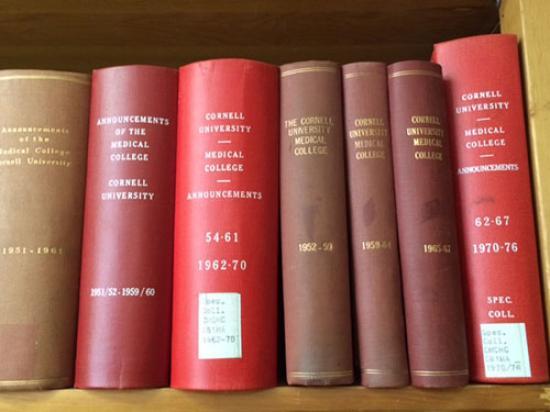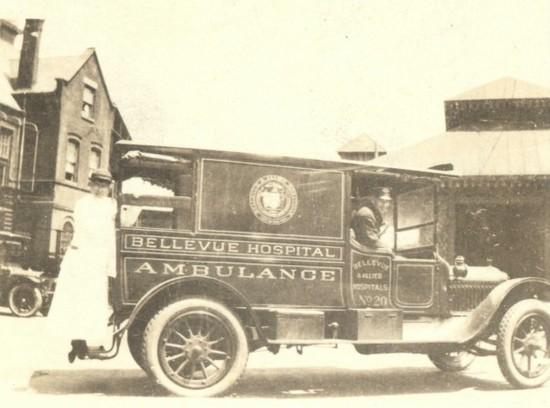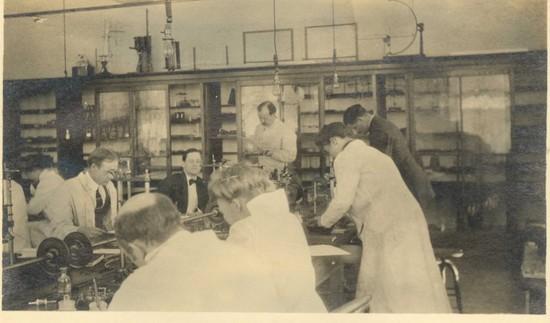New digital collections are now online - Cornell University Medical Announcements, 1960-1985 and Cornell University Graduate School of Medical Sciences Announcements, 1954-1989

We've just finished up the digitization of institutional

We've just finished up the digitization of institutional
Jacalyn Duffin, MD, PhD, FRCPC, FRSC, Professor and Hannah Chair of the History of Medicine, Queen's University, Kingston, will present the Heberden Society Lecture onTuesday, December 10, 2013, at 5:00 p.m.
Medical Miracles: Doctors, Saints, and Healing in the Modern World
Tuesday, December 10, 2013. 5:00 p.m. (light refreshments at 4:45)
Uris Faculty Room (A-126)
Weill Cornell Medical College, 1300 York Avenue
The Archives will be closed for the Thanksgiving holiday, Thursday, November 28th and Friday the 29th. We'll reopen on Monday, December 2, 2013.
Here are images of Hospital Nutrition Department staff preparing Thanksgiving pies, to be served at the Hospital in November 1965, and baking cakes in 1968.
We wish you a very Happy Thanksgiving!
We are getting close to our goal of getting our images into our two new image databases. This week images of group faculty and residents dated after 1990 were added to the Institutional Database.
MEDICAL CENTER ARCHIVES UNVEILS DIGITAL COLLECTIONS
The Medical Center Archives has launched a new Digital Collections page on its website.
New Image Databases

This week images from various personal papers collections were uploaded.
Steven G. Friedman, MD, FACS, MBA, Professor of Clinical Surgery, Weill Cornell Medical College, and Chief, Division of Surgery, NewYork-Presbyterian Lower Manhattan Hospital, will present the first Heberden Society Lecture of the 2013-14 academic year on Thursday, September 26, 2013, at The New York Academy of Medicine.
Elizabeth Blackwell: First U.S. Woman Physician
Thursday, September 26. 6:00 p.m. (Light refreshments served at 5:30)
Are you interested in the history of medicine? Then you'll want to attend the Heberden Society lectures!

This week images given to the archives by private donors were uploaded.